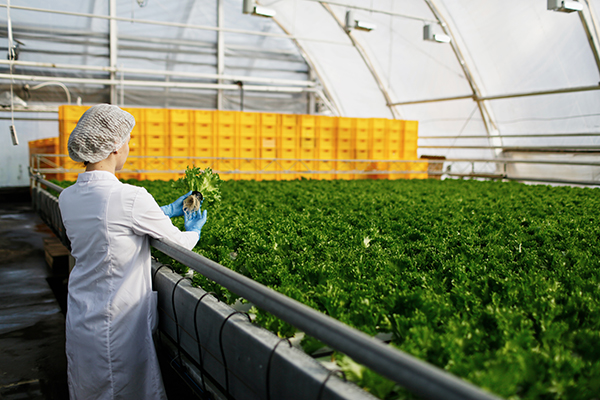Food Allergy Training Resources
Earlier this month, we discussed the importance of being proactive in accommodating customers and staff with allergies. If you read the post, hopefully the message about the importance of training staff on ways to protect guests was loud and clear! Therefore, we devote this blog to discussing some resources available to assist in training staff about food allergies – some are free, and others cost a nominal fee.
Most everyone involved with management of restaurants or other foodservices are aware of ServSafe® educational offerings. While it is not required, and it does cost a nominal fee, the ServSafe Allergens training program offered by the National Restaurant Association Educational Foundation could be a worthwhile investment for key staff. Requiring employees to pass this assessment provides an industry-recognized way to ensure staff have learned the knowledge needed to protect guests.
There are also several reliable free resources available to help train your staff and managers about food allergies. Cathy created a publication entitled, Food Allergy Alert – What Restaurant Managers Need to Know to Train Staff, when she was with Iowa State University Extension that is available free of charge and includes an assessment that managers can use to document staff knowledge. Kevin’s colleagues at Kansas State University have developed numerous resources to help train staff about food allergies. These tools effectively communicate the emotional impact of not following procedures which helps staff understand WHY correctly following developed protocols is so important.
One of these resources available from Kansas State is a video called Caroline’s Story, which portrays the tragic consequences when allergies were not handled properly in a restaurant; sadly, this was based on a real situation. Another video, Caitlin Remembered, was developed by Kansas State’s Center for Food Safety in Child Nutrition programs and has a similar approach with the setting in the school environment. While neither of these videos are intended to teach everything your staff needs to know about handling food allergies, they do present a powerful and emotional reminder about the importance of properly handling requests from customers related to allergies which can encourage employees to modify their behaviors to follow proper practices related to allergens.
The Centers for Disease Control and Prevention has also developed for free publication you can download entitled, Voluntary Guidelines for Managing Food Allergies In Schools and Early Care and Education Programs. This is a great resource, even if you are not in the school foodservice environment. The Food Allergy Research and Education or FARE organization also has helpful resources.
If you do handle allergen training in-house, be sure to include an assessment, just as is done with the ServSafe® program. The assessment provides proof that staff have learned what they needed to learn. And just as we would recommend with all training, document who attended, how long the training was, what was covered, and employee achievement on the assessment tool utilized. As we discussed in our April blog, a positive food safety culture must be established in order to support these changes. Training is useless if the employee returns to an operation that does not support the best practices which they just learned. Encouraging behavior changes after training and having this change supported by everyone in the operation contributes to success of the foodservice. Food or material allergens are common in foodservices. Having a plan to effectively handle these and then providing training to support implementation of the plan are steps in mitigating risk. Risk Nothing!
READ MORE POSTS
Changing Climate: The Unseen Impact on Food Safety
In June, I was asked to participate in the Allinfoodz podcast, put on by a colleague, Dr. Amit Sharma, at Penn State University. One of the points Dr. Sharma wanted to discuss was the impact of climate change on food safety, which is something I was certainly aware of, but not something I had done much research on. However, when preparing for the interview and podcast, it was interesting to learn more about the relationship between the two.
Thawing Food with Food Safety in Mind
There comes a time in almost every foodservice operation where you must thaw food. Yes, I know there are those operations who have moved to fresh products only and don’t have a freezer in-house, but I am willing to bet that is more the exception than the norm. I am almost sure that anyone reading this blog who works in a foodservice operation can regurgitate what methods are acceptable to thaw food per the FDA Model Food Code. In case you don’t recall, I will discuss them briefly, but I wanted to spend some time covering these requirements a bit more in-depth – so you not only know WHAT to do, but the WHY we do it that way.
Addressing Major Food Recalls in Your Business
It seems like every year we have a large-scale food recall that reminds consumers and foodservice operators about the importance of food safety. Not that we need reminded, but it certainly puts the topic in the headlines again. Last year, it was the onion recall. This year, it may very well be the Jiff peanut butter recall, of which we are in the midst of. At the time of the publishing, we are starting to learn more about a potential hepatitis A outbreak linked to strawberries. If you have not been impacted by either of these recalls in your personal or business life, I would be surprised.
Sanitation, Sanitation, Where Art Thou?
Continuing the theme I picked up on a few months ago, discussing common causes of foodborne illness, I’d like to focus this blog on cross contamination, more precisely sanitation. Sanitation is another issue that employees don’t often do at home, so they discount the importance of it in the food production environment. That is to say that they have never made someone sick at home because they only clean their countertops and they have likely never sanitized their kitchen, so why is it so important in a foodservice facility?










